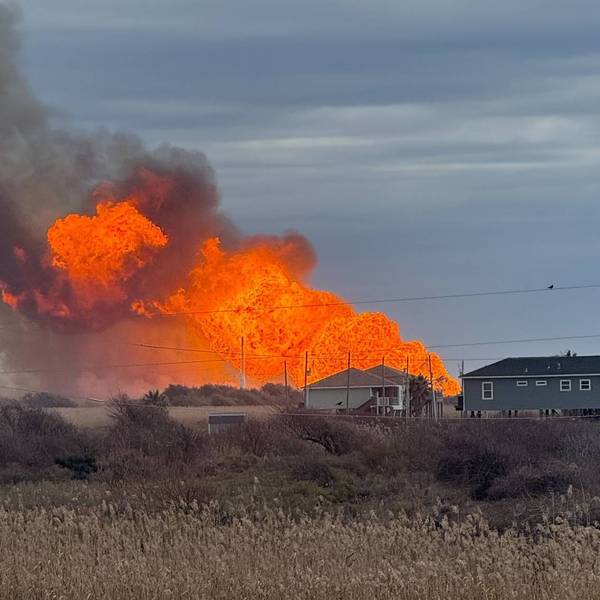A train carrying Bakken crude from North Dakota derailed Monday afternoon in Fayette County, West Virginia, triggering an explosion and fire and sending at least one car into the Kanawha River.
According to a statement from the train company, CSX, the 109-car train was heading to Yorktown, Virginia when the derailment occurred. "At least one rail car appears to have ruptured and caught fire," according to the CSX statement.
The Associated Press, however, reported Monday evening that the derailment ignited at least 14 cars and sparked a house fire.
AP also released this raw footage of the derailment's aftermath:
One of the cars is reportedly leaking oil into the river.
The state police issued an evacuation order for those within a half-mile radius of the area, and Gov. Earl Ray Tomblin declared a State of Emergency for both Kanawha and Fayette counties.
No fatalities have been reported at this time.
Eyewitness Randy Fitzwater told West Virginia's MetroNews, "I heard this loud noise. It sounded like a jet airplane flying over my house real low ... and then I heard an explosion, and I looked out my window and across the river and I could see this big ball of flame. I thought a jet airplane had crashed."
David McClung told AP that he "felt the heat" of the accident from his home a half mile away from the scene. "It was a little scary. It was like an atomic bomb went off," he told the news agency.
The West Virginia Gazette reports: "A train taking the same route last year derailed, causing an explosion in Lynchburg, Virginia."
The federal Pipeline and Hazardous Materials Safety Administration (PHMSA) issued a warning last year that crude from North Dakota's Bakke shale fields is "more flammable than traditional heavy crude oil."
The West Virginia incident comes on the heels of another fiery derailment of a train carrying crude over the weekend in Ontario, as well as mounting calls for stronger safety protections and regulations for the oil-by-rail industry.
"Back-to-back fiery derailments involving crude oil trains should be an unmistakable wake-up call to our political leaders: Stop these dangerous oil trains and stop them now," said Mollie Matteson, a senior scientist with the Center for Biological Diversity. "People's lives are at stake, clean drinking water is at stake, and the well-being of towns and wildlife along thousands of miles of rail line are directly in harm's way of this unchecked, reckless increase in oil transport by rail."
This video uploaded to YouTube by Storyful Editor shows the flames right after the derailment:



